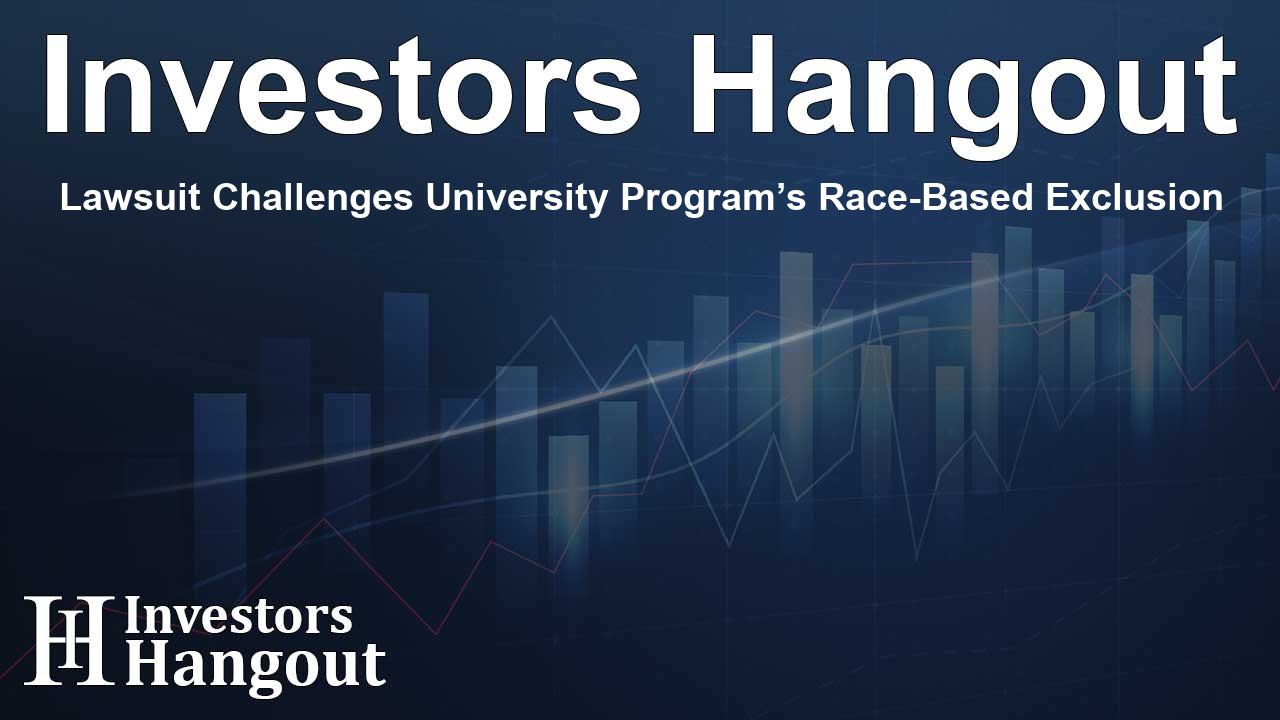Lawsuit Challenges University Program’s Race-Based Exclusion

American Alliance for Equal Rights Takes Legal Action
The recent filing of a federal civil rights lawsuit by the American Alliance for Equal Rights has landed squarely in the spotlight. The organization is challenging the University of Texas at Austin over its 'Black epiSTEMologies' program, which aims to advance racial equity in STEM fields. This significant initiative involves research that promotes equality for Black individuals by confronting and disrupting deeply rooted biases in educational practices.
Understanding the Black epiSTEMologies Program
This collaborative research project, backed by the National Science Foundation, has drawn attention due to its specific focus on supporting only Black or biracial students, thereby raising questions about fairness and inclusivity in federally funded programs. The lawsuit argues that the methodology employed by the project goes against foundational legal principles designed to ensure equal treatment for all students, regardless of race or ethnicity.
The Basis of the Legal Challenge
According to the legal complaint, the initiative's structure excludes students who do not identify as Black from participating, even if they meet all other qualifications. For instance, students participating in the program are compensated for their involvement; however, only those identifying as Black or biracial with at least one Black parent are eligible to receive these benefits. This exclusion has resulted in significant legal ramifications, sparking discussions about race relations and educational equity.
Spotlight on Member A
The lawsuit is filed on behalf of a member, referred to as Member A, who is a full-time undergraduate STEM student at a Texas university. Member A met all the race-neutral qualifications to partake in this beneficial research but was blocked from progress once he identified his racial background. The impact is substantial; this student aimed to use his compensation to assist with engineering supplies essential for his academic journey, highlighting the personal stakes involved in this complex issue.
What the Lawsuit Seeks
The legal team is not merely seeking to challenge the ongoing race-based restrictions imposed by the university but is also advocating for broad reform. They are pushing for the opportunity for all eligible students, regardless of race, to have access to these academic initiatives. Additionally, the lawsuit aims to correct the discriminatory aspects of this program and potentially offer damages for those affected.
Financial Implications of the Program
At the heart of the dialogue is the program's larger financial framework, which involves a substantial grant of $8.8 million from the National Science Foundation that supports numerous institutions. It underscores the magnitude of federal investments in educational initiatives and raises critical questions surrounding the allocation of these funds. How universities use such resources is a pivotal aspect of this legal debate.
Voices of Concern
Edward Blum, the president of the American Alliance for Equal Rights, has expressed his firm stance against the practices employed by the University of Texas at Austin. He described the program as shockingly discriminatory, noting how it contradicts constitutional guarantees of equal protection and federal civil rights laws. Blum insists that the university's approach is a misstep, advocating for the need to utilize public funds in a manner that promotes inclusiveness instead of division.
Call for Reform
Blum's advocacy also reflects a broader call for reform across educational institutions that may inadvertently endorse exclusionary practices under the guise of promoting equity. He emphasizes the frustration and confusion surrounding the university’s continued use of a program that appears to undermine fundamental principles of fairness and liberty.
As this case continues to unfold, it bears implications not just for the University of Texas at Austin, but also for other educational institutions facing similar scrutiny and challenges regarding their equity initiatives.
Frequently Asked Questions
What is the main focus of the Black epiSTEMologies program?
The program aims to promote racial equity for Black individuals in STEM fields by disrupting anti-Black norms and supporting research that fosters inclusivity.
Who filed the lawsuit against the University of Texas at Austin?
The American Alliance for Equal Rights filed the lawsuit challenging the race-based exclusion within the program located at the university.
What are the core claims of the lawsuit?
The lawsuit claims that the program violates the Fourteenth Amendment and Title VI of the Civil Rights Act by discriminating based on race.
How does the lawsuit impact the students involved?
The lawsuit seeks to allow participation for all students, regardless of race, thereby promoting equality in academic opportunities and compensations.
What does Edward Blum say about the program?
Edward Blum has criticized the program as discriminatory and contrary to constitutional values, urging for the need for reforms in how educational funds are utilized.
About The Author
Contact Riley Hayes privately here. Or send an email with ATTN: Riley Hayes as the subject to contact@investorshangout.com.
About Investors Hangout
Investors Hangout is a leading online stock forum for financial discussion and learning, offering a wide range of free tools and resources. It draws in traders of all levels, who exchange market knowledge, investigate trading tactics, and keep an eye on industry developments in real time. Featuring financial articles, stock message boards, quotes, charts, company profiles, and live news updates. Through cooperative learning and a wealth of informational resources, it helps users from novices creating their first portfolios to experts honing their techniques. Join Investors Hangout today: https://investorshangout.com/
The content of this article is based on factual, publicly available information and does not represent legal, financial, or investment advice. Investors Hangout does not offer financial advice, and the author is not a licensed financial advisor. Consult a qualified advisor before making any financial or investment decisions based on this article. This article should not be considered advice to purchase, sell, or hold any securities or other investments. If any of the material provided here is inaccurate, please contact us for corrections.
